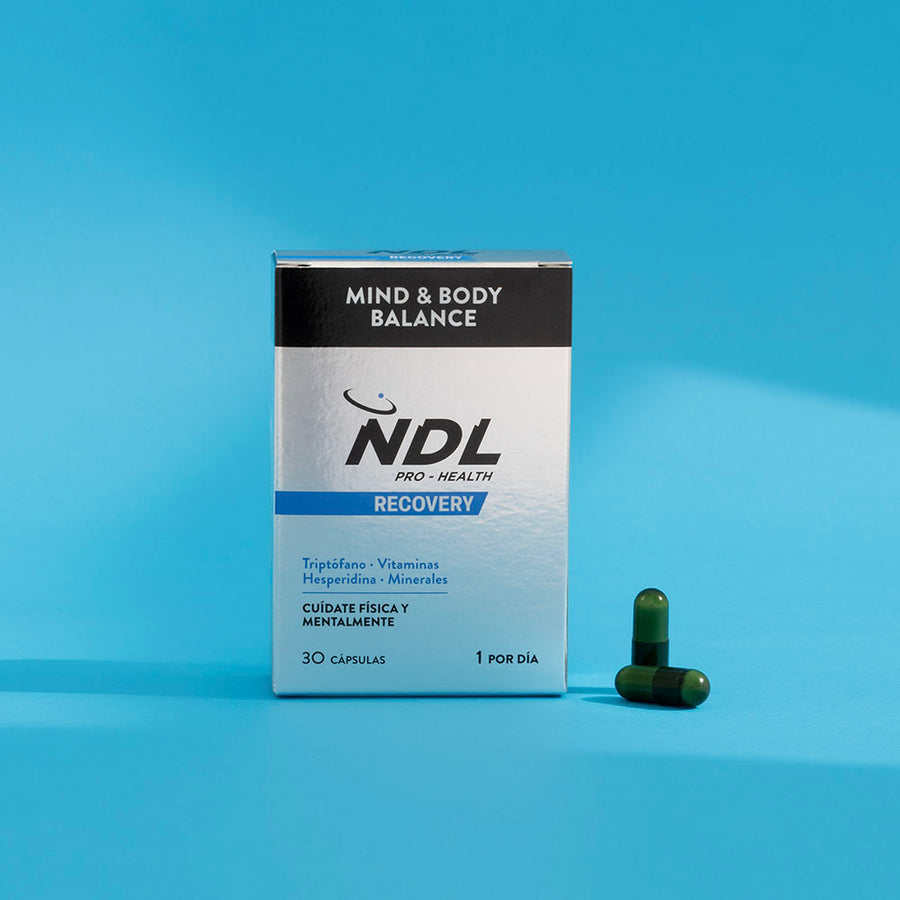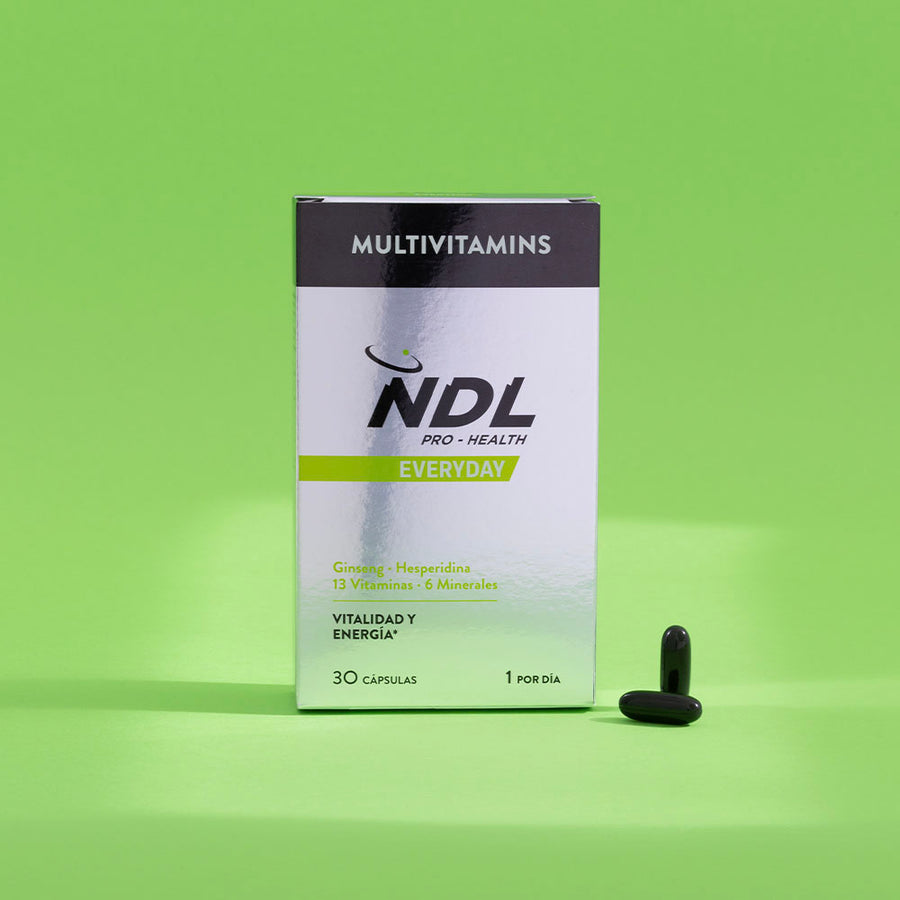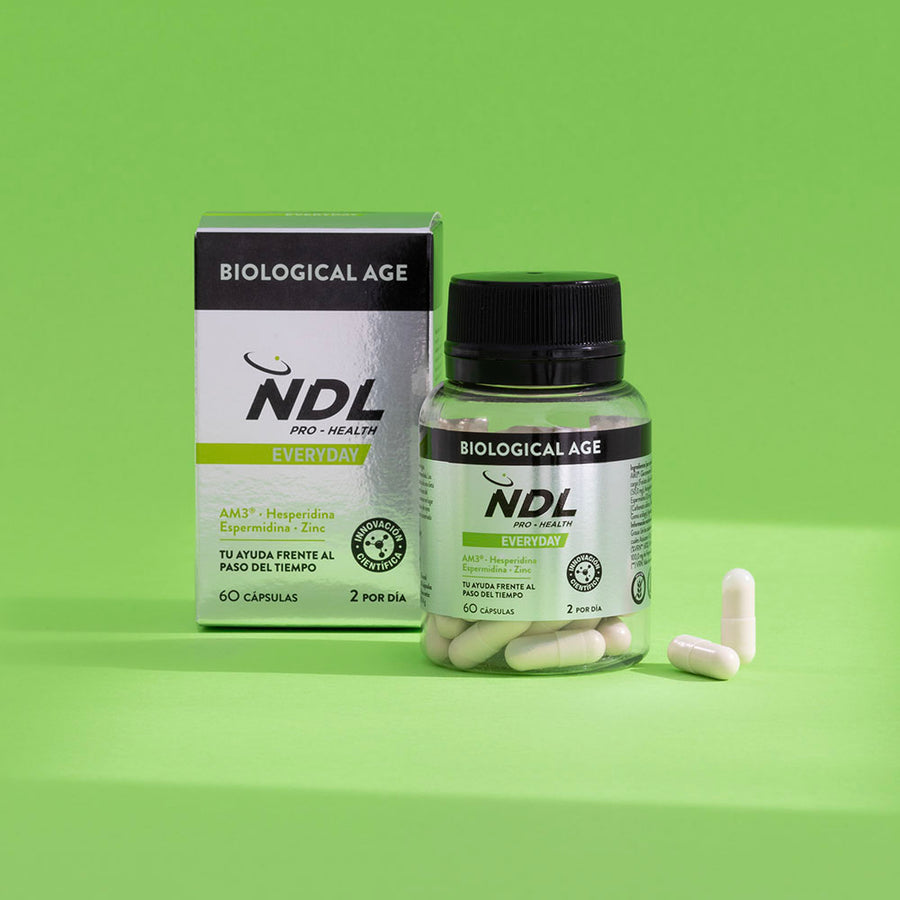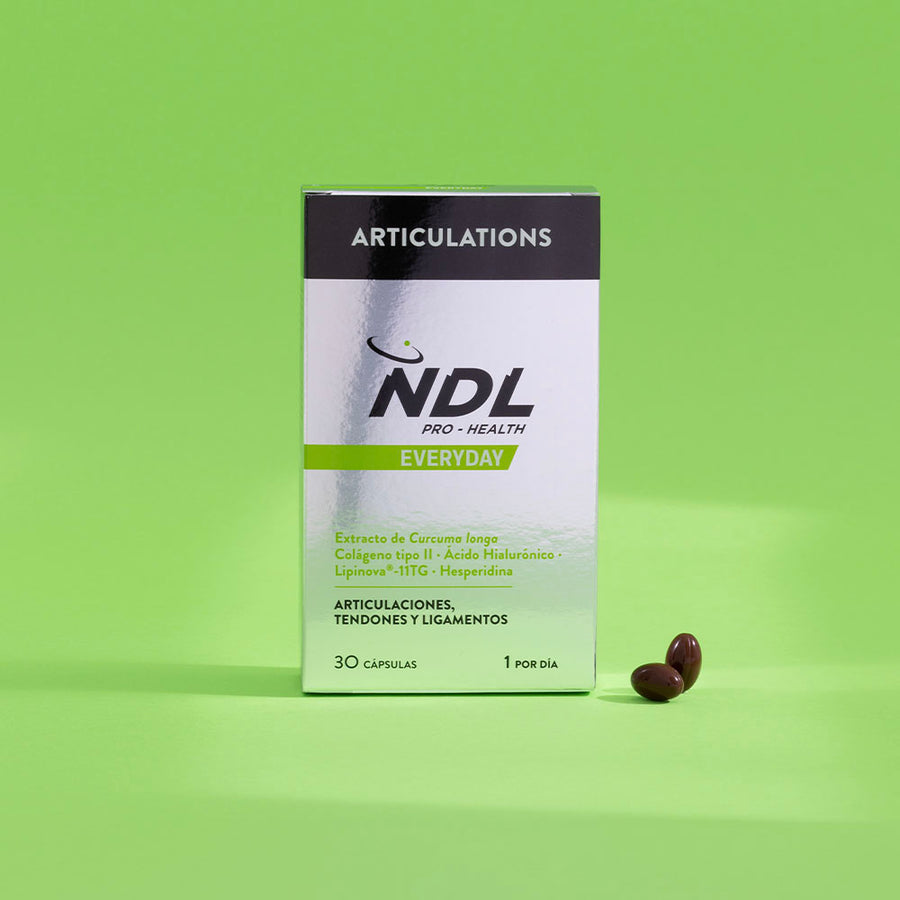Featured Products

Mind & Body Balance
See product
Multivitamins and Minerals
See product
Biological Age
See product
Articulations
See productAmino acids play a very important role in the body, intervening in protein biosynthesis with the aim of repairing cells and tissues (1). Tryptophan or L-Tryptophan is one of the 10 essential amino acids found in all proteins, but it cannot be synthesized in our own organism and, therefore, must be incorporated into it through the diet.
Insufficient intake of tryptophan-containing foods or their accelerated metabolism leads to a rapid reduction of its plasma levels, with very negative consequences for health (2,3).
What is tryptophan used for? We explain its biological functions
Tryptophan is a precursor of many substances found in our body that are necessary for its proper functioning. These are the main functions of tryptophan (4,5):
- It participates in the process of protein formation, promoting the repair of cells and tissues, which is very important for the body to remain healthy.
- It is involved in the production of niacin, a form of vitamin B3 that helps the proper functioning of cells and is involved in the processes of metabolism and detoxification. Niacin, in turn, helps regulate cholesterol levels in the body by lowering LDL cholesterol. To produce niacin, tryptophan needs other components such as iron and vitamin B6, which are equally important for the body.
- It is a precursor of serotonin. The body transforms L-tryptophan into another amino acid, 5-hydroxytryptophan. This, in turn, is transformed back into serotonin, a neurotransmitter that fulfills various functions within the body, including its ability to regulate the intensity of neuronal transmission, liver regeneration, regulation of blood clotting, among others.
- Serotonin is a neurotransmitter precursor of melatonin, so tryptophan, being a precursor of serotonin, is an essential component involved in the production and secretion of melatonin. Melatonin is known as the sleep hormone, since it is responsible for regulating our nocturnal sleep cycles.
Health benefits of tryptophan
Emotional well-being and circadian cycle
Mood is an emotional attitude of being or remaining pleasant or unpleasant, which accompanies an idea or situation and is maintained for some time with prolonged duration of hours or days. The causes of mood alterations are multifactorial and nutritional deficiencies seem to be one of the factors that health specialists should consider in clinical practice (6).
The body synthesizes serotonin from tryptophan through a two-step process that depends on tryptophan concentrations in the brain. Because serotonin is involved in the regulation of mood and anxiety, low levels of serotonin in the brain may contribute to increased depression and anxiety (6).
Consequently, the consumption of higher levels of tryptophan has been significantly associated with less depression and irritability and decreased anxiety than with low tryptophan intake, which seems to indicate that dietary tryptophan may affect the levels of the neurotransmitter serotonin in the brain (6). Studies have shown that the association of L-tryptophan, magnesium and B vitamins is effective in reducing anxiety symptoms (7).
In turn, tryptophan, being a precursor of serotonin and melatonin, is directly related to the regulation of the wake-sleep cycle (5). Tryptophan administration reduces sleep latency and nocturnal awakenings and produces sleep induction by behaving as a natural hypnotic (8).
Role of tryptophan in appetite and body weight control
Tryptophan consumption helps regulate fat levels and body mass index and significantly decrease abdominal circumference (9). Because of this, it works excellently as a dietary supplement, even more so when consumed with a moderate-high exercise regimen. In addition, thanks to the synthesis of serotonin, it helps to control appetite (10).
Food sources of tryptophan
Foods containing tryptophan are characterized by being foods rich in protein. There are several foods rich in this amino acid that, when ingested, help to synthesize and control serotonin in the body.
In turn, carbohydrates increase the plasma concentration of tryptophan. Insulin is released after the ingestion of carbohydrates, as we know, has an anabolic effect and influences the transport of tryptophan across the blood-brain barrier, increasing levels in the central nervous system, which allows the synthesis of melatonin. This has been demonstrated in studies, where it is observed that meals rich in carbohydrates, four hours before going to sleep, significantly decrease sleep latency, when compared to meals low in carbohydrates (11).
Consequently, the process of melatonin synthesis from tryptophan requires 2 to 4 hours from carbohydrate intake. On the other hand, low-carbohydrate diets are significantly associated with insomnia (12).
Foods rich in tryptophan include bananas, eggs, milk, dark chocolate, cheese, cheese, almonds, brown rice, honey, nuts, oats, seeds and cereals (13).
Tryptophan deficiency and health risks
Due to all the above mentioned, it is of vital importance the contribution of tryptophan to our organism. If there is a deficiency of tryptophan in the diet, it causes a decrease in its levels in the blood, limiting the synthesis of proteins. This causes a loss of lean mass, which is the most metabolically active mass in the organism.
In addition, a deficient tryptophan intake reduces the levels of its metabolites: serotonin and melatonin. Consequently, it may contribute to an increase in depression, anxiety and insomnia (6).
BIBLIOGRAPHY:
- Villarreal Méndez DJ. Inclusión de cuatro aminoácidos esenciales (Lisina, Metionina, Treonina, Triptófano) en un programa de alimentación forraje–balanceado para el engorde de cuyes (Cavia porcellus). 2019;
- Roso BR, Lorente MLB. Triptófano. Editorial AMAT; 2012.
- PLACER VBEU. L-triptófano: un aminoácido esencial para una salud óptima.
- Devia Orjuela E. Efecto de la suplementación en dieta de L-Triptófano y melatonina sobre el contenido de serotonina, melatonina y la actividad enzimática digestiva en el tracto gastrointestinal de oncorhynchus kisutch. 2015;
- Hernando-Requejo O, Hernando-Requejo V, Requejo Marcos AM. Nutrition impact on insomnia treatment. Nutr Hosp [Internet]. 2020 [citado 15 de diciembre de 2022]; Disponible en: https://www.nutricionhospitalaria.org/articles/03359/show
- Solís-Ortiz MS. AMINOÁCIDOS ESENCIALES PARA EL ESTADO DE ÁNIMO. Com Cons CINTILLO. 2021;
- Andrade EAF de, Sant’Anna LC, Almeida NDC, Venturi I, Brustulim LJR, D’Almeida WO. L-Triptofano, ômega 3, magnésio e vitaminas do complexo B na diminuição dos sintomas de ansiedade. Id Line Rev Psicol. 30 de mayo de 2018;12(40):1129-38.
- Díaz-Negrillo A. Bases bioquímicas implicadas en la regulación del sueño. Arch Neurocienc. 2013;18(1):42-50.
- Puentes C, GonzÃ!`lez R, AÃ\pmez R, Velasco M, BermÃodez V, Rojas J. Estudio piloto sobre el efecto del 5-Hydroxy-L-TriptÃ3fano (5HTP) en la reducciÃ3n de peso en pacientes adultos obesos. Arch Venez Farmacol- Ter. diciembre de 2013;32:71-6.
- Alaya GQ. Efectos de los medicamentos en el apetito. Trastor Conducta Aliment. 2011;(13):1437-60.
- Giadach C, Corzo J, Mesa T, Riffo C. Nutrición y Sueño. Rev Chil Psiquiatr Neurol Infanc AdolescVolumen. 2020;31(2).
- DIETÉTICOS CDAYH. INTERACCIONES DE LAS PRINCIPALES AYUDAS FARMACOLÓGICAS Y NUTRICIONALES CON LOS ALIMENTOS POR LOS DEPORTISTAS. Reunión Anu SEDCANutrición 2012. 2012;37.
- Sousa Júnior DT, Verde TFCL, Landim LASR. Alimentos ricos em triptofano e seu efeito na liberação da serotonina e possíveis benefícios no transtorno de ansiedade. Res Soc Dev. 10 de noviembre de 2021;10(14):e471101422190.

From the NDL Pro-Health team we will provide you with tips to maintain a healthy lifestyle. Sharing knowledge and product recommendations to offer optimal solutions for your daily routine, for your workouts and subsequent recovery, all with the goal of helping you achieve physical and mental wellness.

















